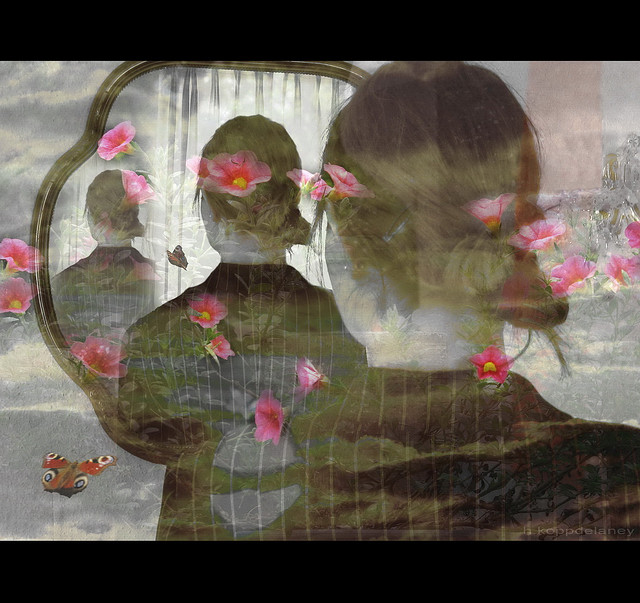One of the great misunderstandings in Buddhism is that feelings are unwanted and we should remain detached from our emotions.
Certainly, in the beginning stages of meditation practice the focus is on learning how to stay calm and steady. The reason we are doing so, however, is not to avoid our emotional life, but rather to gain the tools to work with our feelings more skillfully. As with learning any new skill, there are developmental steps, and as much as we don’t want to skip over the preparatory stages, we also don’t want to get stuck there.
Further down the road, emotions are not seen as something to move away from, but rather as raw energy that can be transformed into something useful. Practicing tolerating our feelings without acting them out is how we learn about the positive and useful aspects of them. We start to listen to what our emotions are telling us about what’s going on around us. We start to realize, “Wow! That makes sense. Those were exactly the right feelings to be having in that situation.” Even more exciting is that we can work on channeling all this wonderful energy into something beneficial for ourselves and other people.
Karla McClaren’s book, The Language of Emotions, is an amazing resource to help you do some further inquiry into each of the emotional states. By doing so, you begin to see how there is absolutely nothing wrong with any of the feelings in and of themselves. They simply bring energy and information forward into our awareness and then dissolve back down on their own. I always like to remind the people with whom I am working, “All your feelings are welcome here.”
The big emotional players in the Buddhist tradition are known as the five kleshas, the Buddhist term for turbulent states of mind:
Ignorance
The Buddha taught that the first emotion to work with is ignorance. Many people don’t think of “ignorance” as an emotion, but it is important to learn about since it is at the root of all the other emotions. Ignorance is how we keep going down the wrong road and repeating the same old habits that make us miserable.
Addictions, eating disorders, and unhealthy relationships are all a sign that we are suffering from ignorance. We keep looking outside of ourselves for happiness only to come up empty handed. Contemplating our ignorance is not to get down on ourselves, but rather to stop putting our energy into what is not working.
The process of working with ignorance has to do with connecting with the pain that results from our our behaviors. Until we directly feel the harmful results of our addictions, for example, we just keep going along in a state of oblivion. Something needs to stop us in our tracks, whether it’s hitting bottom or receiving feedback from the people around us.
Even though we don’t like to feel pain, the direct experience of it can be enough to wake us up, or at least get our attention enough to notice what we’re doing. Bringing awareness to our unconscious patterns takes time and repeated effort, but it’s worth it when we consider the big picture. At some point we realize our only choice is to keep moving forward.
Attachment
Attachment and desire are often misunderstood in the sense of being a problem. There is nothing wrong with our desire. The problem is not the pleasurable experiences we like to have, but rather it is our difficulty accepting the fact that nothing lasts forever and human life is sometimes painful.
When I’ve been caught in the madness of desire and longing for someone or something—and have been able to pause enough to feel the anxiety—surprisingly, underneath it all, I have often found grief. There was something or someone that I just hadn’t been ready to let go of. Sadness is what let me know that I was still holding on and the remedy was nothing more than having a good cry and moving through it.
In the Buddhist tradition, we remind ourselves every day of the impermanence of life. My teacher always said if there was one thing we could really wrap our minds around it would be the reality that nothing lasts forever. It is just the way things are. Once we get past our resistance to accepting it, we see how it is our fantasies about the way we think our life should be versus the reality of what is right now that causes us to suffer. We’re either wanting what we don’t have, or getting what we don’t want, or losing what we do have, and every version in between. So the practice here has to do with grieving our losses, coming out of fantasy, and finding contentment with where we are right now.
Jealousy
Nobody likes to feel jealous, but if we can accept the truth of our experience enough to look into it, there are some important questions to ask. For example, are you jealous in the sense of envy, which is about wanting what someone else has? Or is it jealous in the sense of feeling that someone you love has betrayed your trust? The reason it is important to make this distinction is that there are different remedies to apply.
For example, if you are feeling envy for what someone else has, a good question to ask is if it is true that you are wanting that in your life as well. Often we don’t even realize how much we secretly desire to be more of something, but have not let ourselves entertain the possibility. We may want to bring attention to that part of ourselves and give it the nourishment to grow into a fuller expression.
If it is jealousy in the sense that you suspect your relational boundaries have been crossed, it may be time to look into the boundaries around your intimate partnership and see if there are leakages or invasions. If one or both of you are not feeling met by each other you my be seeking connection outside of the relationship and not even be aware of it. The remedy therefore is about bringing attention and care to the primary relationship and restoring the boundaries around it. In both cases, we can see how jealousy actually is trying to help us and all we need to do is learn how to channel it appropriately.
Aggression
Anger is probably the hardest and most challenging animal to tame. My therapist taught me that to be able to be angry at someone and express it skillfully is a sign of trust in the relationship. I needed to stop being so “nice” to other people with the hopes of pacifying their aggressive feelings.
The tricky thing about anger is that it comes out in so many subtle ways. For example, the ways we subtly reject and push people away, or feel aversion to them by making them wrong, or even silently distrusting them, thinking we know better. Or worse, the flip side of this aggression is when it turns inward and is directed at the self. This is common in people who feel depressed, apathetic, co-dependent and overly enmeshed with others. People sometimes hate themselves for no good reason and then they hate the way they feel. I have found that many people who define themselves as “depressed” actually are suffering the repression of anger. This emotion needs to move, be channeled, and expressed for an overall state of health and vitality.
I like to think of anger as a flash of mental and emotional clarity. It can be so helpful to shine a light on our personal boundaries and to see where things have gotten out of balance in our relationships. Either we are in need of protection from perceived harm, or energetic drainage, or we may need to assert our needs for a change. Looking into it more deeply can help us see what, if anything, is needed and how to channel the energy of the anger into corrective action.
Healthy interpersonal boundaries are absolutely necessary for relationships to function smoothly. This is especially important for people who weren’t allowed to express their anger as children. By not indulging or rejecting, we can begin to sort things out with our wisdom mind.
Arrogance
We may not think of arrogance and pride as emotional states, but it is included with the top five since it is underlies and causes so much of our everyday angst. This includes both people who are narcissistic (everyone is looking at me) and narcissistically wounded (no one sees me). Whether we are fluffing ourselves up, or self deprecating, both states have to do with being overly self absorbed and feeling that “I’m special.” The goal for those of us suffering from arrogance and pride has to do with learning to just be an ordinary human being.
During my graduate school interview at Naropa, I was explaining how I felt “different” from most people, due to the extraordinarily difficult circumstances of my early life. I was very attached to my identity and a “survivor” and was going on and on about my “specialness.” When I finally finished talking, they chuckled and said, “Everyone here is like that.”
As a therapist, I have found that the narcissistic armoring which is based upon external attributes like beauty, wealth, and power is often a very hard shell to crack. I think the reason is that when you strip away those external layers of identity people come face-to-face with a sense of inner emptiness.
Learning to know yourself from the inside out, as opposed to how you are perceived from the outside is a long road, but a worthwhile journey to take. It may or may not have to do with changing anything in your life, but rather learning to inhabit yourself as you move through the day—just being where you are and comfortable in your own skin with no concern about what other people think and if they notice what you’re up to.
When we don’t need anyone to confirm our sense of identity our relationships feel more relaxed and easy. We’re all in this human dance together and we all have our greatness and our challenges. One of the best pieces of advice my teacher gave me was to do whatever it was that made me feel the most mindful and joyful.
Relephant:
This is How we can Change the World.
~
Author: Tina Fossella, MFT
Editor: Travis May
Photo: Flickr/Hartwig HKD











Read 0 comments and reply